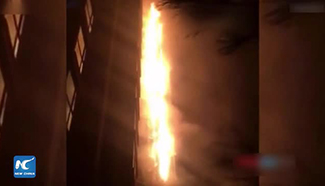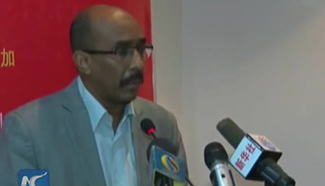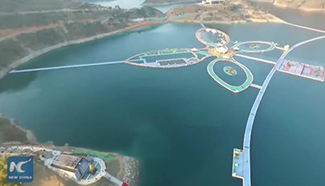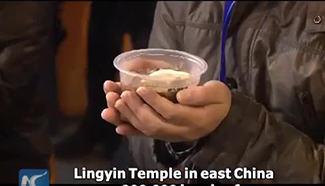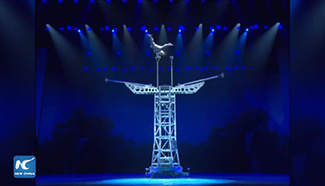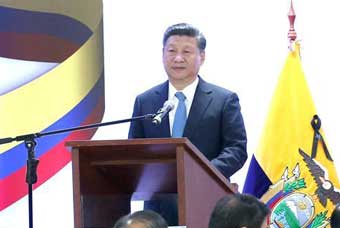by Matthew Rusling
WASHINGTON, Jan. 5 (Xinhua) -- While U.S. President-elect Donald Trump has vowed to get rid of the Islamic State (IS) once and for all, the radical group is already on the run due to increased pressure over the past year, an expert said in an interview with Xinhua.
Trump reiterated promises to defeat the group after the recent deadly attack on a Christmas market in Berlin, which killed 12 and injured dozens more innocent people. The billionaire president-elect has blasted outgoing President Barack Obama for still not having defeated IS in the radicals' Middle East stronghold.
But Wayne White, former deputy director of the State Department's Middle East Intelligence Office, said actually most of the heavy lifting has already been done, and IS appears to be on its way out.
Ongoing U.S. and coalition aerial bombardment, plus U.S.-backed efforts on the ground by Syrian Kurds, Iraqi Kurds, the Iraqi Army, Sunni Arab Iraqi tribes, Iraqi Shi'a militias, and most recently the Turkish Army in one area, have vastly reduced IS' original territory and seriously degraded its combatant forces and cut it off from abroad, White said.
"Once Mosul is cleared -- the only truly large urban area remaining under (IS) control -- the going will be far easier in Iraq," he said.
IS has not been crushed by bombing alone, but also by a host of surrounding opposing forces on the ground. And those forces are almost poised to close in for the kill -- all this with several thousand U.S. advisors and trainers functioning as non-combatants, with only a tiny percentage of them in the frontlines as combat advisors, White said.
While some have questioned whether U.S. boots on the ground will be needed to defeat IS, White said that would speed things up, but not by very much.
"IS clearly can be finished off in Syria (and) Iraq without U.S. combat forces. Such forces would speed up IS' collapse, but not by much since their commitment would take time -- time while IS loses even more ground," White said.
At this late stage of the anti-IS effort in Syria and Iraq, perhaps the most important role Trump and the U.S. military could play would be pressing for the vast Jordanian and Saudi borders along the southern flank of IS' shrunken domain to be as carefully patrolled as possible, White said.
That would mean interdicting IS militants fleeing as the so-called caliphate implodes -- through an area where there are no combatant ground forces pressing inward against it in a pretty solid frontline, White said.
The Jordanians are doing their best to screen their border with Syria, but are burdened with vast numbers of refugees and have a relatively small army. U.S. forces might be of use in aiding Jordan to redouble its border patrols. The Saudis will not accept such U.S. forces, but must be urged to shift more focus from Yemen to their borders with Syria and Iraq as IS folds, White said.
Aside from defeating IS strongholds, a far more difficult job for Trump will be continuing the complex task of minimizing IS-related or inspired domestic terror attacks inside the United States and against U.S. targets internationally, White said.
"This requires intense intelligence gathering and law enforcement efforts to pounce on threats before they descend on the almost limitless numbers of soft targets available," White said.
"That effort could go on for years, and provocative moves like making anti-Muslim statements or adopting anti-Muslim policies could very well increase -- not decrease -- the danger of radicalization and resulting violence," White said.







